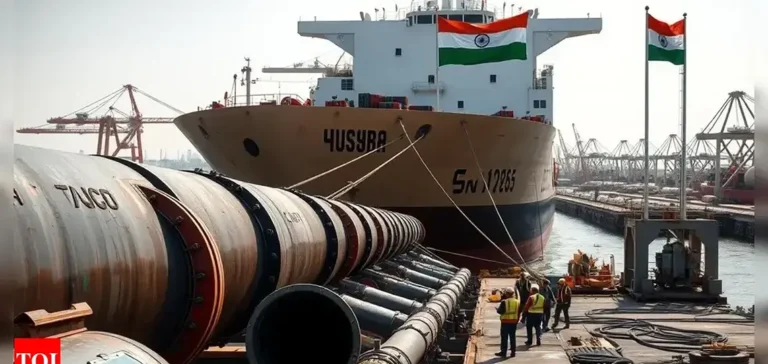Indian Oil Corp (IOC), India’s largest refiner, has purchased seven million barrels of crude oil for delivery scheduled in September, using a spot tender process with suppliers from the United States, Canada and the United Arab Emirates. This large-scale operation comes as Indian state refiners temporarily suspend their imports of Russian crude due to narrowing price differentials and a more complex international environment.
Shift in purchases towards North America and the Middle East
The acquired volumes are divided between 4.5 million barrels of US crude, 500,000 barrels of Western Canadian Select (WCS) from Canada, and two million barrels of Das crude from Abu Dhabi. Several international suppliers are involved in these deliveries: P66 and Equinor will each supply one million barrels of West Texas Intermediate (WTI) Midland, Mercuria will deliver two million barrels of WTI Midland, Vitol will supply one million barrels of WTI Midland and one million barrels of WCS, while Trafigura will ship two million barrels of Das crude. Pricing details have not been disclosed.
This distribution reflects an adaptation of procurement strategies by Indian refiners, including Bharat Petroleum Corporation Limited (BPCL), Hindustan Petroleum Corporation Limited (HPCL) and Mangalore Refinery and Petrochemicals Limited (MRPL), which have put their usual orders for Russian oil on hold. The price gap between Russian crude and its competitors has narrowed significantly, making North American and Middle Eastern barrels more attractive for the Asian market.
Geopolitical context and pressure on Russian imports
Since the intensification of Western sanctions against Russia in February 2022, India, the world’s third-largest oil importer, had increased its purchases of Russian crude. However, no requests for Russian cargoes have been recorded by major state refiners in recent days, an unusual situation given the volumes usually handled.
International pressure is also increasing on buyers of Russian oil. The United States has issued warnings against continuing such transactions, while the European Union has strengthened its sanctions on Russian energy trade, complicating logistical operations and compliance procedures for Asian companies.
Consequences for the Asian oil market
Indian Oil Corp’s choice to turn to alternative sources highlights the agility of Asian players in the face of volatile price conditions and evolving regulatory frameworks. This shift in oil flows demonstrates refiners’ ability to quickly adjust their logistics according to new economic realities.
Industry observers indicate that these purchasing decisions could herald further adjustments in the coming weeks, as geopolitics and the global market continue to affect the import strategies of major Asian refiners.






















